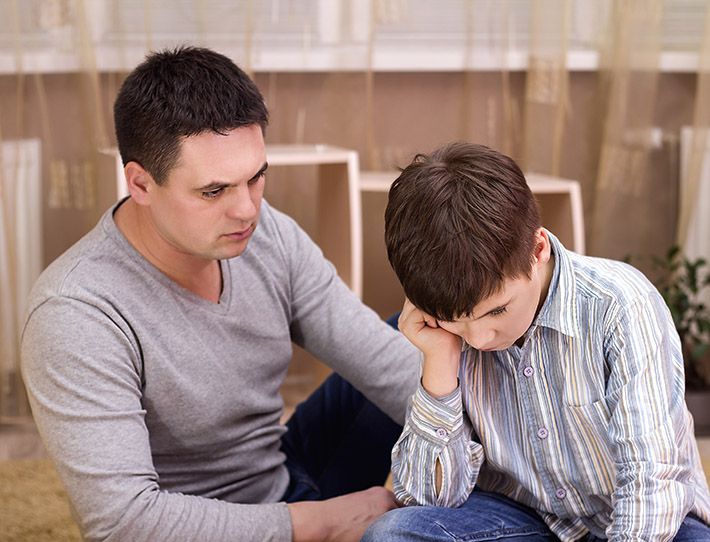The human being (man and woman) according to the biblical perspective, possesses a dignity superior to the rest of creation; since he was created in the image and likeness of God. (Gen 1: 26-27) For that reason, among the best human qualities we can glimpse some of the divine attributes such as: the capacity to love, mercy, intelligence, wisdom, discernment, forgiveness, creativity, authority, stewardship, joy, dedication, etc.
Parents, in their role as guides, trainers and aids for the growth of their children, share with the Creator not only co-creation, that is, giving life, but also authority and stewardship.
One of the most important responsibilities of parents towards their children is to exercise authority, discipline and promote mutual respect.
Nowadays, we often hear that there is no respect from children for their parents, or that the authority and discipline of parents towards their children is questioned greatly in the family as well as in school and society. This makes it necessary to clarify, first, what we mean by authority and discipline, as they could be confused, respectively, with two very frequent errors: authoritarianism and permissiveness.
The word “authority” has its origin in the Latin word “auctoritas”, the suffix “auct” means: increase or make grow. Therefore, in its original meaning, exercising authority is: helping to grow. The dictionary defines “authority” as the delegated right by which one has the power to evaluate, judge, decide, command, execute, and require obedience; and by “discipline”, the training that is expected to produce the character or qualities necessary to obtain a desired result or pattern.
The Christian understanding of authority and discipline is found in the words, actions and attitudes of Jesus, which are always of service, search of justice and the greater good of the other. (Luke 22: 24-30) In the Sacred Scripture, both in the Old and New Testaments, we find numerous and clear references in which God delegates directly to the parents, and not to the school or the government, the authority to watch over the growth of the children, and to exercise discipline over them. (Eph 6: 1-4, Prov 3:11, 22:15, Sir 3: 1-6, 1Tim 3: 5, 5:14, 2Tim 2:14, Col 3:20, Dt 13:19).
Authority, in itself, does not have to do with how strict or flexible we are, but what we appreciate and recognize as most important, that is, our values. For this reason, when we as parents exercise authority over our children, we not only look after their safety and their healthy physical and spiritual growth, but also, through unwavering discipline, we facilitate the correction of errors, and create opportunities for dialogue with them.
Although the positive results of the exercise of authority and discipline in the family and society are visible, it is not unusual at present to realize that family authority and discipline are attacked on two fronts. On the one hand, we see the abusive use of power of one or both parents; and on the other, the total lack of discipline, either because of the parents’ fear of upsetting the children, or as a reaction to abuse they experienced themselves as children or adolescents. In the first case, the family environment becomes an oppressive medium, which is misunderstood as respect; and in the second, it is an environment of confusion and disorder, where children manipulate their parents and do not learn to experience the consequences of their actions.
“Parents must have the courage of the true educator, with a coherent testimony of life and also with the necessary firmness to temper the character of the new generations, helping them to distinguish clearly between good and evil and to build solid rules of life to sustain them in future trials.” (Benedict XVI)
Marriages that do not take the time to strengthen their marital relationship, or reflect together on their responsibilities as a couple or as parents, usually have more difficulty in the exercise of authority and family discipline.
The heart of the family is “the love of the spouses and the generation of children” which establish “between the members of a family personal relationships and primary responsibilities”, since love always carries a responsibility. (CIC 2201)
This summer I invite you to reflect: Is there respect and consideration among the members of our family? Do we give clear expectations to our children and make sure they are met? What do we still need to learn or do as parents to ensure order and harmony in our home?




